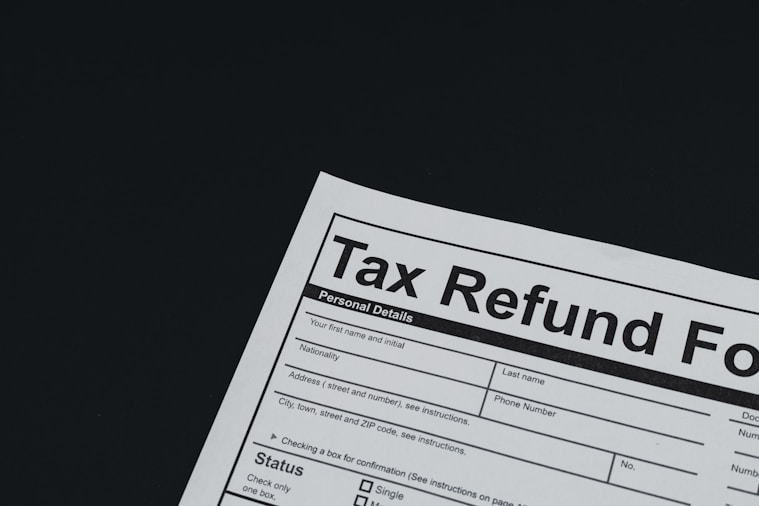GST Return Filing Online
in India
Manage your taxes efficiently with our GST Return Filing Online, ensuring accurate records and timely submissions every month for full compliance.
What Is GST Return Filing?
A GST Return is a legally mandated statement that captures the financial activity of a business, including details of sales, purchases, output tax collected, and input tax credit (ITC) claimed. Filing GST returns is compulsory for all GST-registered businesses in India under the Goods and Services Tax (GST) Act. These returns help the government calculate the net GST liability by reconciling the tax collected with the tax paid on inputs. Depending on your annual turnover and business category, GST return filing may be monthly, quarterly through the QRMP scheme, or annually in the case of forms like GSTR-9. Timely GST return filing not only ensures compliance with GST regulations but also prevents penalties, late fees, and interest charges. Moreover, it allows businesses to claim accurate input tax credit, improve working capital, and maintain transparent tax records. Today, most businesses prefer online GST return filing through the GST portal, where forms such as GSTR-1, GSTR-3B, and GSTR-9 can be submitted digitally with invoice matching and reconciliation features. By meeting the GST return due dates and maintaining accurate data, businesses can stay compliant, avoid tax notices, and ensure smooth operations under India’s unified tax system.

Why File GST Returns?
Filing ITR-1 (Sahaj) is not just a legal obligation—it also offers practical financial benefits
Mandatory Legal Compliance
Avoid late fees and legal troubles by filing GST returns regularly as mandated by the government.
Input Tax Credit Claims
Claim GST paid on business purchases and reduce your tax liability efficiently.
Transparent Tax Management
Maintain a clean and transparent tax record, essential for audits, funding, and future growth.
Supports Business Growth
GST return filing is required for loans, tenders, and expansion — especially interstate or online businesses.
Avoid Late Penalties & Interest
Late filing can attract a penalty of ₹100/day per return (CGST & SGST) and 18% interest on late tax payments.
Essential for E-Way Bills
Without timely filing, you may lose access to the E-Way Bill portal, affecting logistics and operations.
Who Must File
GST Returns?
Regular Taxpayers
01.
Monthly/quarterly filing of GSTR-1, GSTR-3B, and GSTR-9 (if their annual turnover limit exceeds 2Crore) is required.
Composition Scheme Taxpayers
02.
Must file CMP-08 quarterly and GSTR-4 annually.
E-Commerce Sellers/Operators
03.
Need to file GSTR-8 (for operators) and other applicable returns.
TDS/TCS Deductors
04.
Entities that deduct tax under GST must file GSTR-7 or GSTR-8.
Input Service Distributors (ISD)
05.
Must file GSTR-6 monthly.
Non-Resident Foreign Taxpayers
06.
Required to file GSTR-5 monthly.
Online Service Providers (OIDAR)
07.
Must file GSTR-5A monthly.
Businesses With Turnover Exceeding Threshold
08.
As per GST laws (₹40 lakhs for goods, ₹20 lakhs for services, ₹10 lakhs for special states).
Documents Required for GST Return Filing
- GSTIN and login credentials
- Sales invoices (B2B, B2C & exports)
- Purchase invoices
- Expense records
- Credit/debit notes
- GSTR-2B / GSTR-2A reconciliation
- Bank statements (for matching turnover)
- E-Way bills (if applicable)
- Input tax credit (ITC) detail

Types of GST Returns You May Need to File
| Return | Purpose | Due Date |
|---|---|---|
| GSTR-1 | Details of outward supplies (sales) | 11th of next month (Monthly) / 13th after quarter (QRMP) |
| GSTR-3B | tax liabilities, ITC claimed, and net tax payable | 20th (Monthly) |
| GSTR-4 | Annual return for Composition Scheme | 30th April after FY |
| GSTR-5 | Return for non-resident taxpayers | 20th of next month |
| GSTR-5A | Return for OIDAR services | 20th of each month |
| GSTR-6 | Input Service Distributors | 13th of each month |
| GSTR-7 | TDS deductors | 10th of each month |
| GSTR-8 | E-commerce operators | 10th of each month |
| GSTR-9 | Annual return for regular taxpayers | 31st Dec after FY |
| CMP-08 | Composition taxpayers (quarterly tax) | 18th of month after quarter |
| GSTR-2A / 2B | Inward supply reconciliation (read-only) | Auto-generated |
| GSTR-9C | Reconciliation statement with audit | 31st Dec after FY |
| ITC-04 | Job work related returns | Periodically |
What You Get With YesToBoss
GST Return Filing Services
Explore our specialized internal audit services designed to manage risk, enhance control, and ensure operational and regulatory excellence
Timely preparation and filing of applicable GST returns
Reconciliation of sales/purchase invoices with GSTR-1, 2A, and 2B
Support for monthly, quarterly, and annual GST return filing
Reminders to avoid missed deadlines
Guidance for claiming accurate Input Tax Credit (ITC)
Support with notices, audits, or rectifications from the GST Department
Access to expert consultation and transparent pricing

Penalty for Late GST Return Filing

01
Late Fee
₹100/day per return for CGST + ₹100/day for SGST (max ₹5,000).

02
Interest
18% per annum on late tax payment.

03
Blocked ITC:
Late filing may lead to ineligibility for ITC for that tax period

04
Ineligibility for Next Return
Can’t file the next return until the previous is submitted
What Happens If I File GST Returns Late?
Late filing results in a penalty—₹50 per day (₹20 for NIL returns)—plus interest on unpaid tax. Continuous delays can restrict input credit claims and e-way bill generation.
FAQ
Got Questions? We’ve Got Clear Answers
Find quick, reliable answers to your most common questions here
It depends on your business type. Regular taxpayers must file monthly (GSTR-1, GSTR-3B), while composition scheme businesses file quarterly (CMP-08) and annually (GSTR-4).
These are auto-generated returns showing your inward supplies from suppliers. 2A is dynamic; 2B is static and supports ITC reconciliation.
You cannot use ITR-1 if you have income from capital gains, whether short-term or long-term. In such cases, ITR-2 is the appropriate form for filing your return.
Yes. Nil returns must be filed regularly to maintain compliance and avoid penalties.
GSTR-9 is the annual return and GSTR-9C is a reconciliation statement required for certain businesses. Our team handles both.(ADD TURNOVER)